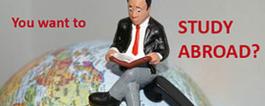Turn around in Cuba?
The 2012 year-end report to the Cuban National Assembly indicates the government is moving towards a more market-oriented economy while trying to maintain the socialist system.
According to the report from Cuban economy minister Adel Yzquierdo Rodriguez the number of self- or privately-employed workers rose by 23 per cent in 2012. In 2012 Cuba started a privatization campaign closing thousands of its government-owned small retail outlets such as barbershops and cafeterias that are known for economic inefficiencies. The shops are usually offered to employees or others interested in running their own business. This year the campaign will be broadened out further as Cuba plans to turn more than 200 medium-sized businesses into private cooperatives.
These steps to open up the economy coincide with Cuban President, Raul Castro, easing travel rules for his citizens as well. From now on Cuban citizens no longer need exit visas or invitations from a resident of a foreign country in order to travel. The policy shifts are the biggest changes since the 1959 revolution led by Raul Castro’s brother Fidel and prompted the U.S. business and finance magazine Forbes to call for the U.S. to end its “senseless embargo of Cuba”.
(02.2013) Sources: Forbes, Stabroek News, SMH
Stay up to date - with the monthly newsletter JobguideXpress INTERNATIONAL.
We read the Wall Street Journal, Financial Times, Asia Times, The Australian, Forbes und even more - and you receive the latest news about jobs, companies and career!
Kostenlos monatlich internationale Job-News bekommen
Der JobguideXpress INTERNATIONAL. Darin fassen wir für Sie alles Wichtige über Jobs, Unternehmen und Karriere zusammen - aus Wall Street Journal, Financial Times, Asia Times, The Australian, Forbes und vielem mehr.







